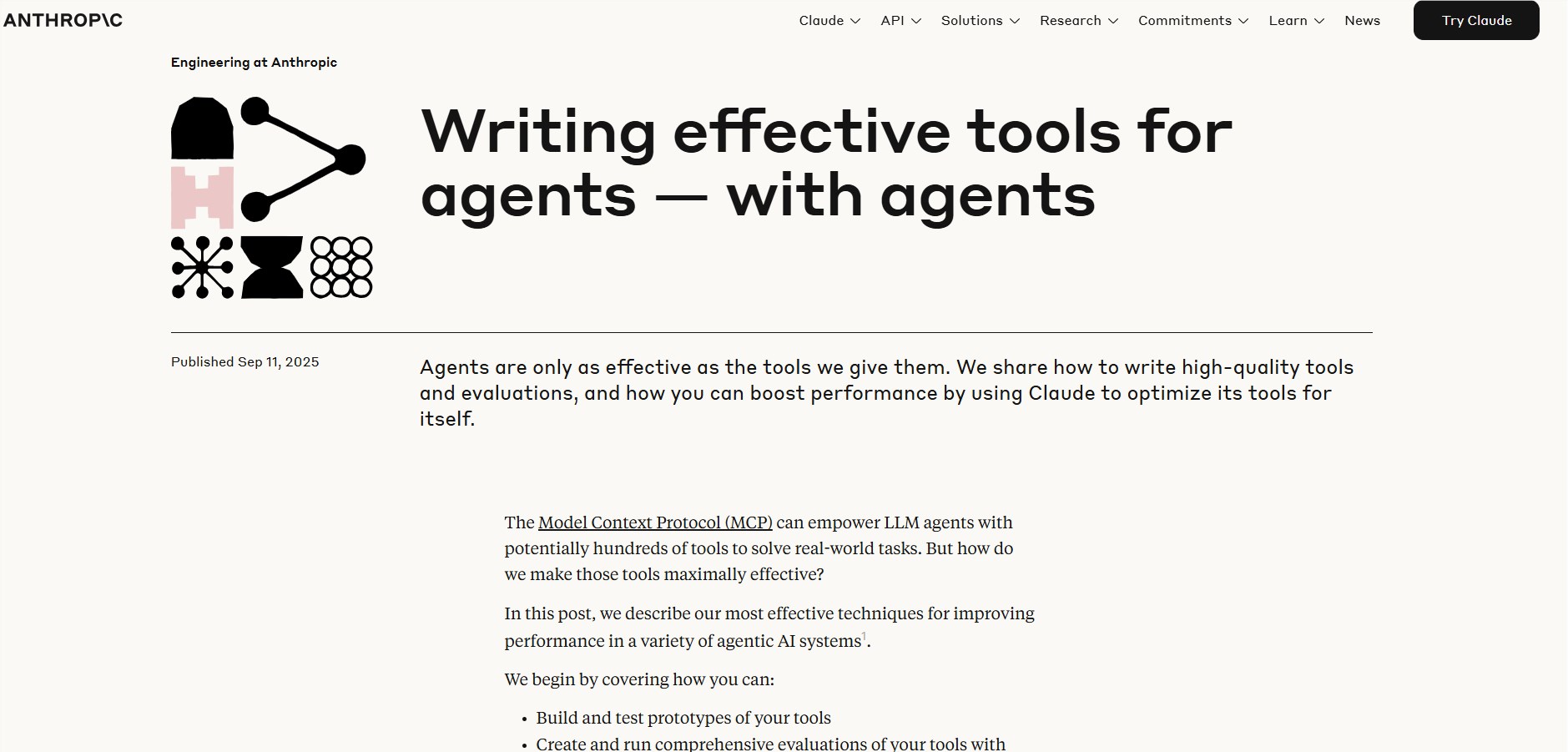Anthropic Releases Guide for Optimizing LLM Agent Tools
Anthropic Publishes Developer Guide for LLM Agent Tools
Artificial intelligence research company Anthropic has released a detailed technical guide titled "Writing effective tools for LLM agents—using LLM agents" on its official blog. The document provides developers with best practices for creating optimized tools that work with large language model (LLM) agents through the Model Context Protocol (MCP).

Three-Step Development Process
The guide recommends an iterative approach consisting of:
- Prototype: Quickly build initial tool versions
- Evaluate: Test tool performance rigorously
- Collaborate: Refine based on team feedback
Five Key Design Principles
- Tool Selection: Carefully choose tools that genuinely meet agent needs rather than including unnecessary functions.
- Namespace Clarity: Maintain clear, distinct naming conventions to prevent confusion among different tools and functions.
- Meaningful Returns: Ensure tools provide contextually rich and informative return values that enhance agent decision-making.
- Token Efficiency: Optimize data transmission by reducing unnecessary token usage in returned information.
- Enhanced Descriptions: Use prompt engineering techniques to create clear, functional descriptions of each tool's purpose and operation.
The methodology behind these recommendations was developed through extensive testing with Anthropic's Claude Code AI system, which automatically analyzed patterns across numerous scripts and tool descriptions. To ensure reliability, Anthropic evaluated the findings using reserved test sets to prevent overfitting.
The company has also open-sourced its Cookbook for tool evaluation and noted that as both the MCP protocol and underlying LLMs evolve, tool capabilities will continue to improve accordingly.
Key Points
- Anthropic's guide helps developers create more effective LLM agent tools
- Recommends prototype-evaluate-collaborate development cycle
- Emphasizes five critical design principles including namespace clarity and token efficiency
- Findings validated through Claude Code analysis and test set evaluation
- Open-source Cookbook available for community use